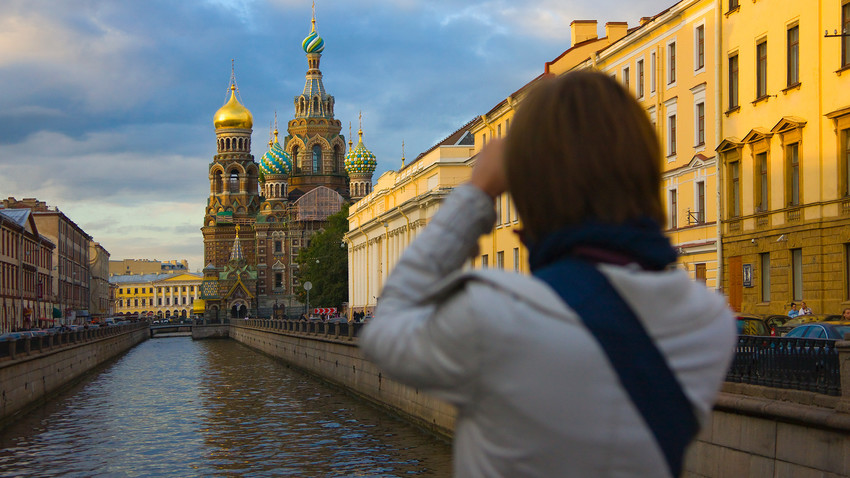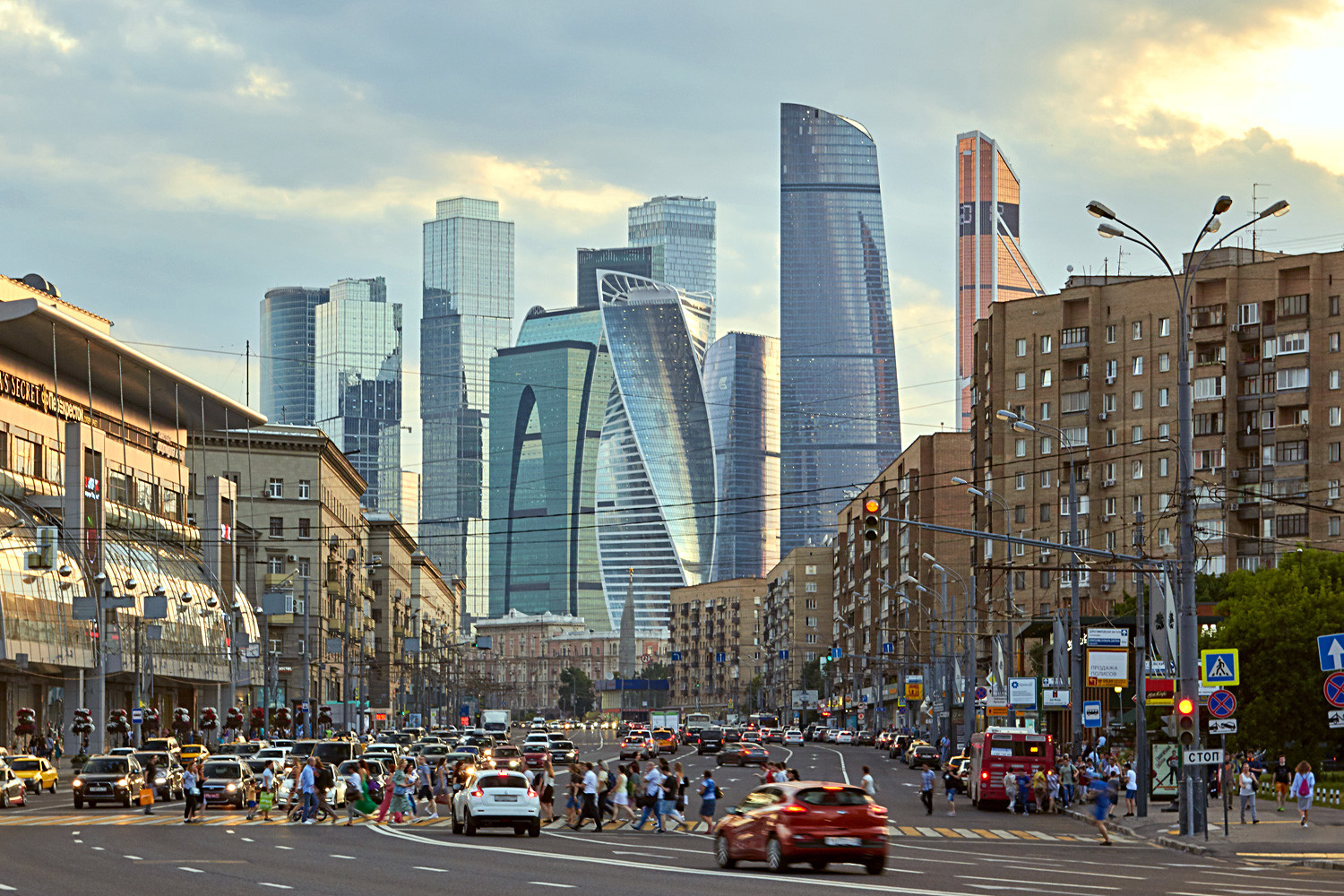8 things you can do to better understand Russia

Even though Russia isn’t far from the rest of Europe, it can often seem like a strange and faraway land to some people in the West. Here are some simple tricks to help you understand the country better and see beyond just the stereotypes.
1. Get to know Russian people

There are estimated to over 30 million native Russian speakers outside of Russia, making it one of the world’s biggest diasporas. This means that even if you’ve never been to Russia itself, you’re never too far from the nearest Russian person.
They might come across as surly at first, but don’t worry—once you get past that initial impression, Russians make great friends. Unpredictable, emotional and honest, a Russian will sincerely care about you once you gain his/her trust. This can be an enlightening experience in relationship building, forcing you to dig a little deeper to think like a philosopher and talk like it’s your favorite past time. It will also reveal a great deal about the Russian socio-political landscape, especially in the sense that politics is a trivial topic to most Russians. They do not define their relationships to people by their relationship to material things like the government or consumer items.
2. Read the classics
A common culture and mentality is at the heart of all Russian society, and no one will demonstrate this to you more clearly than Russia’s greatest 19th century writers. The philosophy of the “Russian soul” covers peasants and millionaires alike–the best way to describe it would be as a complex depth with historic roots in religion that subverts logical thinking and pins living to the mere miracle of survival.

This is a central theme of most Russian classics. In War and Peace, Napoleon’s Grande Armee is defeated by the collective defensive spirit along with Field Marshal Kutuzov’s confidence that everything will sort itself out. The main character in Crime and Punishment, Raskolnikov, eventually finds redemption from his misdeeds because he is alive and able to suffer.
To understand Russians’ pragmatism and realism, you have to understand why they are willing to sacrifice themselves. And the classics will help you understand better than anything else. Can’t decide where to start? Let Tolstoy himself help you out.
3. Learn about Russian history
Believe it or not, there is a lot more to Russian history than Putin, communism and tsars! Russia’s history goes back over 1200 years and, due to geographical vulnerability, it has been under the threat of invasion for much of that time. This has made Russia defensive and conservative, punctuated by just a few brief bursts of rapid modernization (most notably under Peter I and Stalin).
To understand why Russians often seem to crave an “iron fist,” you need to go back hundreds of years and look at the historical context. Why not start with our comprehensive guide to the Romanov dynasty?

4. Do business with Russians

French sociologist Emile Durkheim once argued that the insincerity of business-like relationships would lead to anomie, a kind of isolation in which our interactions are rendered meaningless. If Durkheim saw the way modern Russians do business, he might have changed his mind because to be a true business partner to a Russian, you have to be a friend first and foremost.
This can be a strange experience for many, especially since Russians are oftentimes not as obsessed with money as other Western cultures. One Russian saying goes “friendship is friendship, and business is business.” So befriend your Russian business partner, drink with them, and in the end they won’t even see it as business. Learn the tricks of the trade here.
5. Read up on Russia’s minorities

The narrative of Russians the kind of bogeymen of international politics starts to fall apart when you realize there is not actually any archetypal Russian. After all, the country is home to 22 independent republics and over 160 ethnic groups, each with their own values, concerns and traditions.
As one Russian aphorism goes, “scratch a Russian and you’ll find a Tatar.” Indeed, Tatars have the largest population of any minority in Russia, but others, such as the Buddhist Buryats of Mongol descent or the far-flung Chukchis, are less well know but equally interesting. No two Russians are the same.
6. Watch documentaries
No, we’re not just talking about the VICE krokodil documentary. Thanks to the internet, Russia’s sheer vastness has been caught on camera and shared with the world. Rodion Ismailovich’s Third-Class Travel does this perfectly, capturing life on the unique and lively Trans-Siberian Railway.

It’s also worth checking out Andrey Ananin’s American Dream, which tells the story of Justus Walker, an American running a farm in the heart of Siberia. And while we’re at it, why not take a look at Evgeniy Grigoriev’s Looking on the Other Bank, a film that highlights Russia’s diversity by following the journey of eight different filmmakers. This list is a great place to start and will give you lots to do while procrastinating.
7. Widen your media consumption
There is actually much more to Russian current affairs than hacking allegations, but the Western media tends to focus primarily on Russia’s role in international politics. As a result, you have to dig a little deeper to find good coverage about what’s going on inside Russia itself.

That’s not to say there aren’t decent Russia analysts in the West. For example, Shaun Walker (@shaunwalker7) of the Guardian comes to mind. But to get a fuller picture, make sure to expose yourself to different sides of a story. For a diverse range of opinions, you could start by checking out Sean Guillory’s blog (@seansrussiablog), Ben Aris (@bneeditor), RT’s Danielle Ryan (@DanielleRyanJ) and Bryan MacDonald (@27khv). And of course, keep reading Russia Beyond.
8. Learn Russian

Okay, so this method for wrapping your head around Russia might require a little more commitment than most of the others. However, if you really want to fully understand the expressiveness of Russian culture and society, learning Russian is the single best way. Sure, it’s complex, and the grammar is a nightmare (instrumental case, anyone?), but it does get better, we promise!
Plus, once you have a basic understanding of Russian, you’ll see that the grammar actually provides a linguistic freedom that allows you to kind of do what you want with the language, for example throwing words around in almost any order. It is this freedom and creativity of the language that made Russia a literary powerhouse. As Gogol once put it, “the Russian language is admirably adapted to express the most delicate shades of thought.” If you don’t believe it, check out these untranslatable Russian words.
If using any of Russia Beyond's content, partly or in full, always provide an active hyperlink to the original material.
Subscribe
to our newsletter!
Get the week's best stories straight to your inbox